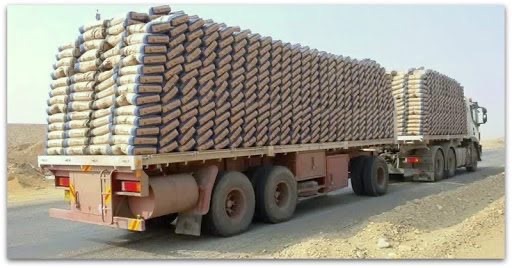By: Malanding Darboe & Jung Jabang
The Cement Importers and Traders Association (CITA) hasaccused Jah Oil Company and the minister of trade of launching a campaign of misinformation against their members.
CITA meanwhile said the Gambia government has embarked on a detrimental course of action that threatens to cripple the construction industry which, it described, as the backbone of the Gambia’s economy.
“By raising import duties on bagged cement from all African countries, the government is effectively fostering a monopoly for Jah Oil, a company struggling under the weight of millions of dollars in government-guaranteed loans. This move is not only economically unsound but morally indefensible, as it prioritizes corporate interests over the welfare of the Gambian people,” CITA said in a press release issued to this medium on Monday.
It added: “This directive will disproportionately benefit large-scale importers, who collectively employ fewer than 500 people while decimating small-scale importers who provide jobs for over 3,000 individuals and represent more than 300 small businesses across The Gambia. The construction sector, which attracts significant remittances and contributes over 40% to our GDP, will be severely impacted by any delay in projects, undermining our nation’s economic potential and growth. Since Tobaski, small-scale importers have been stranded at the border, with millions of dollars in assets exposed to rains and additional millions tied up with no way to repatriate these funds back into the Gambian economy. The drivers and their staff face daily risks, including sabotage and theft of cargo, with no security support from the government. This neglect exacerbates the challenges faced by Gambian businesses and workers, further highlighting the government’s disregard for its people.”
The association warned that the “government’s preference for Asian and European powder cement over African bagged cement will result in substantial tax revenue losses and the elimination of thousands of jobs”. It continued: “This policy benefits Jah Oil exclusively, allowing it to manipulate the market and drive up cement prices. The trade ministry’s claim that small-scale importers generated only D25 million in tax revenue last year is patently false. And GRA needs to explain how hundreds of millions of dalasis vanished in thin air. This figure suggests that only eight trucks were operational throughout 2023, despite recent evidence showing over 130 trucks released from the border in one day just a month ago. As evidenced by Ciment Du Sahel, they exported over 620,000 tons of cement to Gambia in 2023, which generated D550 million dalasis in tax revenue alone before Sococim and Dangote. What did GRA do with our country’s treasure?”
CITA said in reality, 200 small-scale importers, when operating normally, contribute over a billion Dalasis annually through import duties and fuel tax and provide employment to thousands of Gambian youths. “Jobs are crucial in preventing crime and illegal migration. Jah Oil’s D1 million-dalasi payment per vessel to NAWEC pales in comparison to the D3.5 million weekly fuel tax contributions from small-scale importers, which directly benefit the government. Momodou Hydara, the general manager of Jah Oil, continues his campaign of misinformation with his enablers at trade has resorted to the same intimidation tactics he employed while at NIA. It is unconscionable that a man who oversaw the torture of Gambians is allowed to roam freely and sit alongside government officials while his victims endure lifelong trauma or, worse, lie in their graves. Where is the accountability in our country?
“Despite relentless misinformation campaigns by Jah Oil and the Ministries of Information and Trade, small-scale importers have consistently engaged the government in good faith. Our multiple appeals to the President and trade ministries have been ignored, and our constitutional right to demonstrate has been denied four times with no legitimate reason. This suppression of democratic rights underscores a troubling trend of government favoritism towards propping up monopolies like Jah Oil, which has been bailed out numerous times since 2010 through special investment certificates, loans, and temporary import bans designed to prop up its business. The Gambian people must recognize the grave implications of this policy. Jah Oil’s reliance on higher cement prices to service its unjustifiable loans is a clear indication of the government’s complicity. It is imperative that we unite to end this harmful policy and avert further trade conflict with ECOWAS members who also provide all the basalt, electricity and security to the Barrow administration.”





